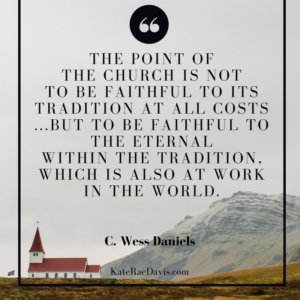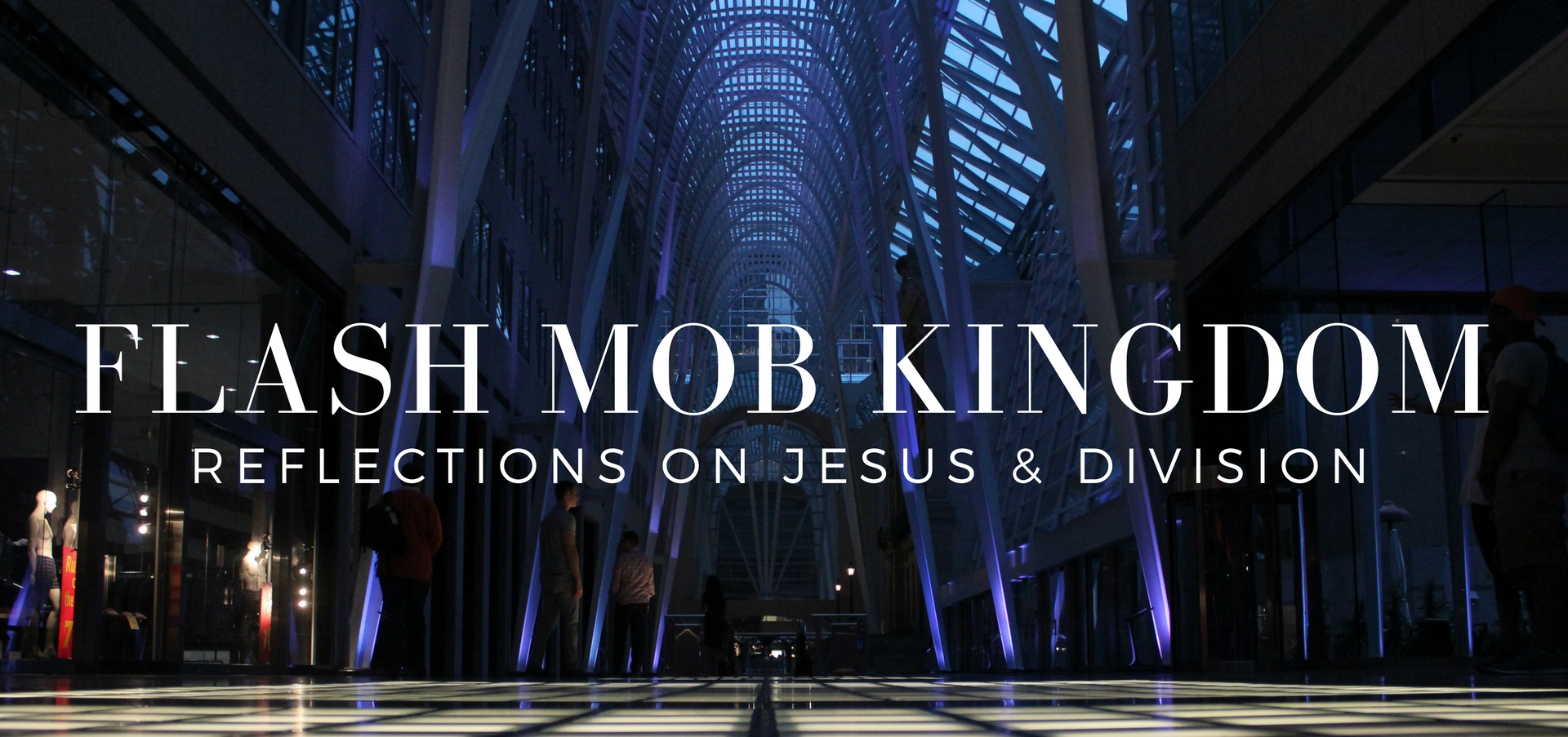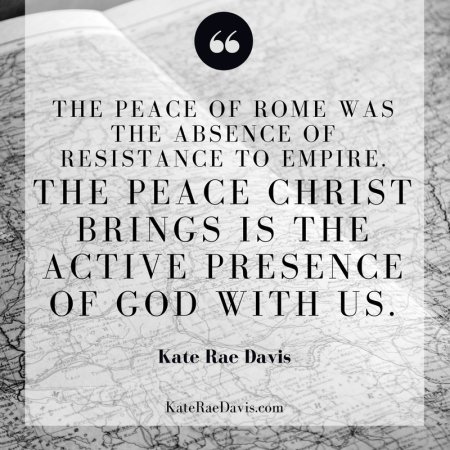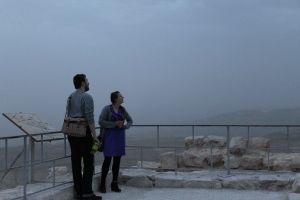A rich man eats a feast while a poor man starves.
It’s a familiar story.
It was a familiar story when Jesus told it two millennia ago, and it’s still a familiar story now.
It’s what comes after that story that makes Jesus’s telling of it remarkable. Jesus uses that everyday story as a background to launch into the story about the conversation he imagines the rich man having with Abraham, the father of the Jewish faith, the one through whom “all the nations on the earth will be blessed.”
And Jesus imagines them having a conversation about the role of scripture in our lives.
The rich man cries out, “Father Abraham, send Lazarus with some water, I’m in agony.”
And Abraham reasons with him, “Remember that in your lifetime you received many good things,” and then goes on to point out, “there’s this chasm between us,” like, I can’t really do anything for you here.
The rich man seems to accept that — he doesn’t argue.
But he does make another request (well, more like a demand) of Abraham, on behalf of his family. “Send Lazarus to my house so that he might warn them.”
And Abraham replies, “They have Moses and the prophets; they should listen to them.”
“Moses and the prophets” is a longhand way of saying scripture, but it’s also more evocative than that.
According to rabbinic tradition, Moses wrote the Torah, the first five books of the Bible. To say “They have Moses” conjures the histories and laws contained in Genesis, Exodus, Leviticus, Numbers, and Deuteronomy.
To say “They have Moses” would evoke the entirety of the laws, which covers many aspects of life — what you do and don’t do on a Sunday, the clothes you wear, how you grow your food, which food you eat, and who you eat with.
More deeply, more centrally than the law, to say “They have Moses” evokes the central narrative of Jewish identity found in the Exodus story.
The Exodus story is about Abraham’s descendents, a few generations on. They are enslaved, exploited, oppressed by the world superpower of the day. They had nothing. And God calls Moses to lead them to freedom, to search for a home, to restore them to their original purpose as God’s people — to bless all the nations of the earth.
To say “Moses” encompasses both story and law, together, because of course they’re intimately connected. It’s been suggested that many of the laws found in Torah would have been for better health of a nomadic people at that time. The law came from and was designed to fit their circumstances. And when those laws first came, they were new ways of living.
Abraham says to the rich man, “They have Moses and the prophets.”
The books of the prophets make up much of the rest of Hebrew scripture.
Each prophet has different emphases, various points they want to highlight, but they all share the task of calling God’s people back to their identity as God’s people. They all call God’s people back to being a blessing to all nations of the earth.
The prophets called people to live into that identity in ways that matched their new context, even when that context was horrific, even when it felt unbearable.
Some prophets spoke when the Jewish people were oppressed or exiled, offering hope or reminding them to continue to be a blessing to others — even their oppressors.
Some prophets, like Amos (whose words the lectionary places alongside the story of the rich man and Lazarus), wrote at a time of relative peace and prosperity, but noted the neglect of God’s laws. Amos says, “Alas for those who lounge on their couches, and eat lambs and calves.” It seems that luxurious opulence and neglect go hand in hand.
Psalm 146 (again, chosen to go along with these texts from the lectionary), succinctly encompasses many of the themes from Moses and the prophets.
The psalm begins and ends with “Praise the Lord.”
The middle verses expand on what it looks like to praise the lord: “Do not put your trust in the political powers, in mortals, in whom there is no help; happy are those whose hope is in the Lord their God.”
 It goes on to describe the character of this God by listing the people that God shows concern for: the oppressed, the hungry, prisoners, the blind, those who are bowed down, the righteous, the strangers, the orphans, and the widow.
It goes on to describe the character of this God by listing the people that God shows concern for: the oppressed, the hungry, prisoners, the blind, those who are bowed down, the righteous, the strangers, the orphans, and the widow.
This is not Time Magazine’s list of the most influential people.
These are not the kind of people you want to aligning yourself with if you want wealth or political influence or military power.
Yet they’re the ones that God has chosen to be God’s people, to go and bless all the nations of the earth. People who are on the bottom of the power chain. People with massive amounts of debt. People who had broken laws or rebelled against the empire. People burdened by disability and disease. People without even the most fundamental markers of social status of family or nation: immigrants, refugees, foster kids.
Abraham tells the rich man, “They have Moses and the prophets; they should listen to them.”
And the rich man — who quietly accepted his fate of flames without a drop of water — the rich man says, “No, father Abraham.”
The rich man says that this wealth of scripture isn’t enough.
And you know, he kind of has a point.
Perhaps the rich man followed the law, did everything by the book. He wore the right clothes, he ate the right things, he didn’t work on the sabbath, he gave 10% of his income to his religious institution — perhaps he did everything “right.” He followed the law to the letter.
And then he ends up in the flames of Hades.
The laws of “Moses and the prophets” weren’t enough.
Perhaps what he was missing isn’t obedience to law. Perhaps his error wasn’t a failure to follow the law.
Perhaps what he was missing is the spirit of those laws.
His error was in misunderstanding the purpose of the law.
The law is not a checklist to get to heaven; it’s an aid to help guide us into loving God and neighbor.
Abraham, notably, didn’t have Moses and the prophets; he didn’t have law to follow at all.
All he had was a God who called him to unbelievable tasks. He followed God’s call in ways that were new for his time. For instance, God told Abraham to circumcise himself and all the men in his household. This was a new idea that Abraham followed — and it became a central marker of Jewish tradition.
And Abraham mentions his descendent Moses, who also had no law.
He, too, did his best to follow the demands of a foolish God — a God who sent him into the center of world power with nothing but a long stick. Moses didn’t have a law to follow. He wrote the law, wrote the best practices for living as they travelled through the desert. And those laws became central markers of Jewish tradition.
 And the prophets took those laws and applied them to new contexts, in new ways. The prophets followed the spirit, and utilized the law as a way to help a people follow the spirit.
And the prophets took those laws and applied them to new contexts, in new ways. The prophets followed the spirit, and utilized the law as a way to help a people follow the spirit.
Because, as C Wess Daniels writes, the point of a faith community, “the point of the church is not to be faithful to tradition at all costs. The point of the church is to be faithful to the eternal spirit within the tradition, which is also at work in the world.”
.
In his life, death, and resurrection, Jesus confronts the idea that following the law is enough.
Jesus invites us to live into the spirit of the law.
He heals on the sabbath. He eats with the most despised people in town. He tells stories and performs miracles in ways that reframe the law as not just a set of rules to follow, but as a way of living that recognizes and loves the ones that the empire has forgotten, ignored, or oppressed.
And in doing so, he again changed the tradition.
Each Sunday, we share bread and cup at Jesus’s table. We do this not because Jesus commands it, not as a checklist on the way to Abraham’s side in heaven. We come to the table to be fed. We come to remember that Jesus feeds everyone. We come to remember that spirit is with us and spirit is for us.
May our traditions guide us in our understanding and experience of the eternal, and push us out into the world — where spirit can meet us, and transform us, yet again.

Originally preached at St Luke’s Episcopal Church, Seattle, WA, on Sept 25, 2016.















